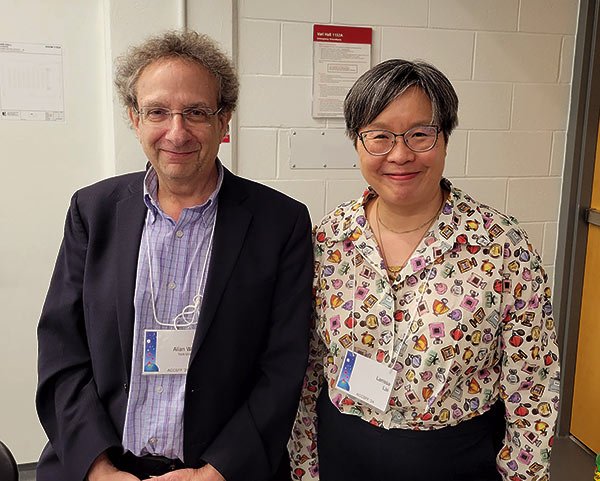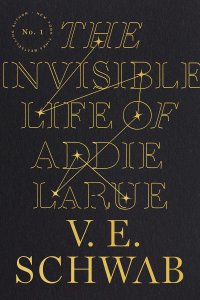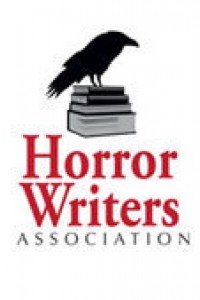The Academic Conference on Canadian Science Fiction and Fantasy
The Academic Conference on Canadian Science Fiction and Fantasy 2024 was held on June 8-9 in Toronto ON. Keynote speakers were Larissa Lai and Nicholas Ruddick, with remarks from the organization’s chair, Allan Weiss. Held quasi-annually since 1995, ACCSFF features papers and panel discussions on “all aspects of the field,” with a long association with the Toronto Public Library’s Merril Collection of Science Fiction, Speculation and Fantasy.
This year, ACCSFF was held at York University. The conference was single-tracked, leading to a lot of ongoing conversations and connections across multiple panels as attendees. Around 20 academic and independent scholars presented their work in person or by online presentation, with participants from several Canadian provinces, the United States, and Amity University in Haryana, India.

Each day of the conference was anchored by a superb keynote. On Saturday, Larissa Lai, award-winning author (The Tiger Flu, The Lost Century) and Richard Charles Lee Chair of Chinese Canadian Studies at the University of Toronto, delivered an insightful talk on “Asian Futurism and Techno-Orientalism,” which examined both Orientalist tropes in speculative fiction and the various ways they are rejected or adapted by a broad range of writers and artists. Lai’s presentation was especially interesting for her nuanced comparisons to Afro/African and Indigenous Futurisms, and her discussion of how fraught racial terms are constructed, but also inhabited.
On Sunday, Nicholas Ruddick, professor emeritus of English at the University of Regina and prolific academic author on science-fictional topics (The Fire in the Stone: Prehistoric Fiction from Charles Darwin to Jean M. Auel, Science Fiction Adapted to Film) delivered an autobiographical keynote tracing his career in speculative fiction studies. Far from a dry monograph, this was a lively and humorous journey through a half-century of scholarship, essentially taking the audience on a personal journey through the entire formation of science fiction and fantasy academia to date, with many insights into how international politics, shifting university administrative priorities, and growing popular culture has influenced SFF studies. Of particular note was Ruddick’s emphasis on multimedia representation, an expansive conception of genre, and a number of fascinating anecdotes about SFF figures he became involved with through conference and journal work, such as Harlan Ellison and Margaret Atwood.
Some presentations were more straightforwardly informative, sharing deep research into a few different areas. Chester Scoville, for example, had a wonderful paper on “Nelvana in Context,” looking at how the WWII-era Canadian comic hero Nelvana of the North would have been read at the time: as just one element among many, in comic books that hadn’t settled into clearly defined genres and were actively experimenting with new forms. Looking at a very different set of texts from around the same time period, Nicholas Serruys shared his archival research on Erres boréales (Northern Wanderings) by Florent Laurin (pseud. Armand Grenier) and related works – a small genre, now mostly overlooked, of quasi-utopian speculative fiction set in Canada’s far north. Jumping ahead to the present moment, Liz Poliakova’s “Self-Publishing Science Fiction and Fantasy” was a slice of an interview-driven research project into the mechanics, cultures, and finances of self-publishing.

Elsewhere, there was a broad range of more traditional papers. Wendy Roy’s “From Past to Future” was a fascinating look at historical fiction as speculative fiction, and vice versa, using works by Wayde Compton, Thomas King, and Cherie Dimaline as touchstones, while Nathaniel Harrington’s “Skin Stretched Taut Over Bone” examined various kinds of monstrosity (with some interesting twists from Mark Fisher’s The Weird and The Eerie) in Nathan Niigan Noodin Adler’s Wrist. The Wendigo myth was a recurring thread in a few different talks, including Harrington’s, and was central in George Kaldis’s “We Eat Our Own: Cannibalistic Technology and Indigenous Lessons in Gibson’s Sprawl Trilogy.” Jake Casella Brookins’ “In Praise of Soulless Villains” looked to Peter Watts and Robert Charles Wilson for examples of how to think about the current AI hype, Monica Sousa’s “Over Her Dead Body” contemplated the speculative version of the “domestic noir” as embodied in Kim Fu’s “Twenty Hours,” and Cat Ashton provided an insightful analysis of Natalie Zina Walschot’s Hench – to give just a sense of the variety of authors and topics discussed.
The conference was commenced and concluded with panels on the work of Margaret Atwood, including Palak Arora on rationality and affect in Oryx and Crake and Dominick M. Grace on the seriousness under the silliness in “The Martians Claim Canada.” Annie Luong and Mabiana Camargo gave a pair of excellent talks on The Heart Goes Last – Luong examined the way utopian and dystopian concepts are intertwined in the novel, while Camargo explored how the novel’s carceral systems interact with gender roles.
Organizer Allan Weiss characterized the conference as “one of the most interesting ACCSFFs ever!” While dates and venue for the next ACCSFF are not yet public, they fully plan to continue. Information about past and future conferences, including the ability to purchase bound proceedings, may be found at <www.yorku.ca/accsff>.
–Jake Casella Brookins
Photos by Jake Casella Brookins

While you are here, please take a moment to support Locus with a one-time or recurring donation. We rely on reader donations to keep the magazine and site going, and would like to keep the site paywall free, but WE NEED YOUR FINANCIAL SUPPORT to continue quality coverage of the science fiction and fantasy field.
©Locus Magazine. Copyrighted material may not be republished without permission of LSFF.








